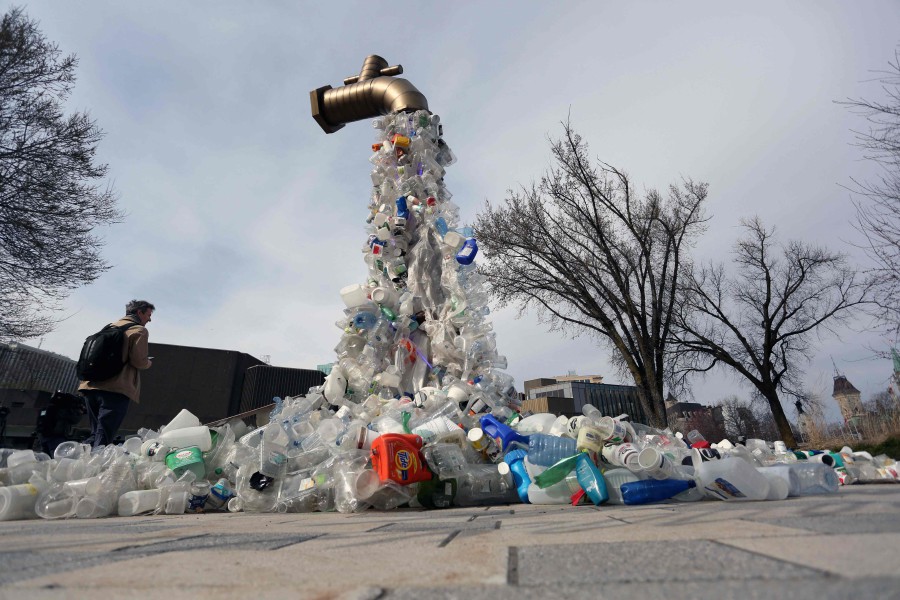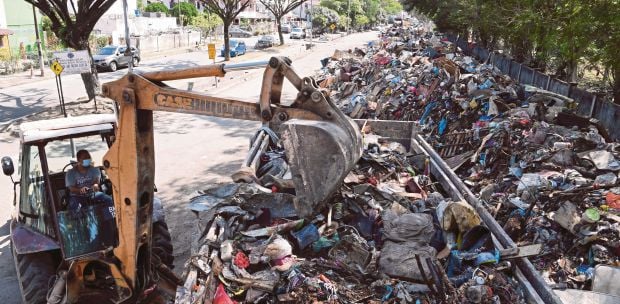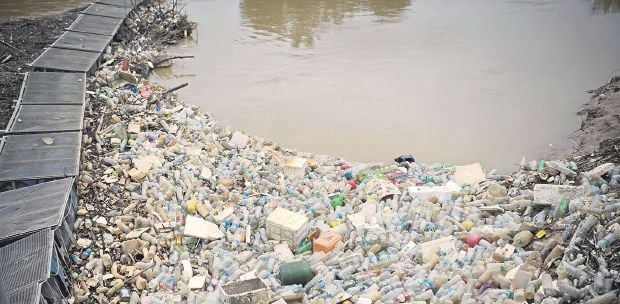If current rates of plastic production and use continue, the annual global plastic production will increase to 590 million tonnes, bringing total production to about 34 billion tonnes by 2050.
About eight million tonnes of plastic end up in the ocean yearly, impacting marine habitats and organisms.
The Intergovernmental Panel on Climate Change (IPCC), in its reports, recognises the significant impact of plastic pollution which contributes to greenhouse gas emissions (GHG) and environmental degradation.
In its Sixth Assessment Report (AR6), the IPCC states that plastic waste management practices can contribute to reducing emissions from waste decomposition and methane emissions from landfills.
The problem is exacerbated by the production of single-use plastics, which account for 40 per cent of all plastics manufactured.
These figures highlight the urgent need for enhanced recycling efforts, alternative energy sources and stricter regulations to mitigate the detrimental effects of plastic pollution on ecosystems and human health.
Malaysia has made some inroads in addressing plastic pollution, but there is still a long way to go.
The country is ranked 78th out of 166 countries in 2023 Sustainable Development Report.
According to the report on Sustainable Consumption and Production (SDG12), municipal solid waste remains an issue.
We are still facing significant waste management challenges across various streams. Solid waste recycling rates are low, with recyclables constituting a substantial portion of landfilled waste.
Our solid waste management relies heavily on landfills, leading to space, health and environmental concerns due to ineffective and inadequate recycling practices and low recycling rates compared with other nations.
A survey conducted last year by Utility Bidder, an energy service provider from the United Kingdom, found that Malaysia discarded about 2.29kg of plastic per person each year into the ocean.
We are in fifth spot, behind Saint Lucia (4th), Trinidad and Tobago (3rd), Suriname and the Philippines which have occupied the top spots for the most amount of plastic rubbish and waste that end up in the ocean.
The government has introduced several initiatives to improve waste management, such as the National Strategic Plan for Solid Waste Management 2019-2030 and the Separation at Source Initiative (SSI) under the Solid Waste and Public Cleansing Management Act 2007 which focus on waste separation at the household level.
However, challenges persist, including inadequate infrastructure and insufficient funding for waste management facilities.
The Consumer Association of Penang recently revealed that 500 toxic chemicals, including pesticides and industrial chemicals, were detected in recycled plastic pallets from 13 countries, including Malaysia.
According to the World Health Organisation, health concerns exist throughout the plastics' lifetime, including production, use, recycling and eventual disposal.
Increasing evidence of microplastic intake and inhalation, concerns over exposure to harmful compounds in plastic and the need for better waste management techniques are all becoming more prominent in public health discussions.
Plastic pollution can have several dire effects on public healthcare, primarily through its impact on the environment, human health and various ecosystems. Some effects include water contamination, marine pollution, vector-borne diseases and even mental health.
Microplastics and plastic additives can get into water sources easily, potentially affecting the quality of drinking water and leading to increased risks of waterborne diseases and other health issues when consumed by humans.
Plastic waste in the ocean can enter the food chain, affecting marine life and the seafood we consume. Ingestion of microplastics can lead to health issues that include gastrointestinal and reproductive problems.
> Kanmani Nakeeran:
Blaming plastic as the sole pollution culprit would be oversimplifying the issue.
Plastic is, indeed, a significant contributor to pollution, but it is essential to recognise that this is often the result of human behaviour, consumption patterns, waste management systems and a lack of proper recycling initiatives.
If we are to assign the blame, it would be more accurate to point towards individuals, industries and governments that contribute to overproduction, mismanagement and improper disposal of plastic products.
Corporations that produce single-use plastics, consumers who rely on these products and governments that fail to implement effective waste management policies – take note.
The issues we face are societal, stemming from cultural values, political ideologies, legal and economic systems, ethical principles and spiritual beliefs. We must look beyond science and technology to solve the issue from a broader sociocultural perspective.
Addressing plastic pollution requires behavioural change and collective efforts from all stakeholders, including individuals making conscious choices, industries developing sustainable alternatives and governments enforcing stringent waste management laws.
Improved enforcement of existing laws, increased public participation and more significant investments in waste management infrastructure are crucial for Malaysia to effectively tackle plastic pollution.
Additionally, collaborations with other countries in the region and global partnerships can help address the transboundary nature of this issue.
As clearly stated in the preamble of the Earth Charter, "…we stand at a critical moment in Earth's history, a time when humanity must choose its future. We must join together to bring forth a sustainable global society founded on respect for nature, universal human rights, economic justice, and a culture of peace".
The charter also calls for ecological integrity by leading a sustainable lifestyle via adopting patterns of production, consumption and reproduction that safeguard Earth's regenerative capacities, human rights and community well-being.
Let's promote harmony with nature and the Earth. Happy International Earth Day!
*The writer is a research analyst at Institut Masa Depan Malaysia (Masa)





